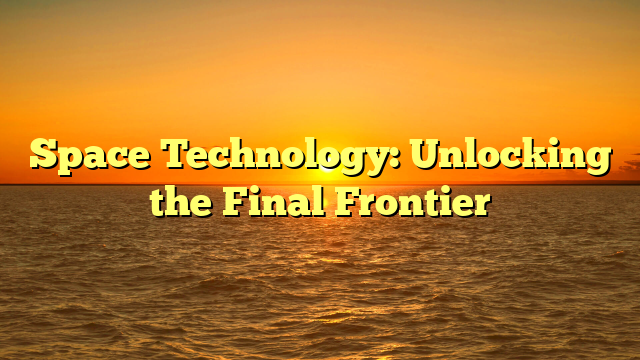Space has always fascinated humanity, but recent technological advances have brought the dream of exploring the cosmos closer to reality. Space technology, once dominated by government agencies, is now increasingly driven by private companies and international partnerships. From reusable rockets indo168 to satellite constellations, these innovations are expanding possibilities in communication, exploration, and even colonization.
One of the most transformative breakthroughs is reusable rocket technology. Companies like SpaceX and Blue Origin have demonstrated that rockets can land safely and be flown again, dramatically reducing the cost of space travel. This development has opened the door to more frequent missions, making space exploration more commercially viable than ever before.
Satellite technology has also evolved rapidly. Modern satellites provide global internet coverage, monitor climate change, and track natural disasters. Constellations of small satellites, known as “smallsats,” are revolutionizing telecommunications by offering fast and affordable internet access to remote regions. These tools also play a vital role in Earth observation, helping governments and scientists tackle challenges like deforestation and natural resource management.
Space technology is also reshaping the global economy. Space tourism is emerging as a new industry, with companies offering suborbital flights for private citizens. Mining asteroids for rare minerals, once a science-fiction fantasy, is now being seriously studied as a potential source of resources. These activities could redefine how humans view wealth and sustainability on Earth.
Scientific exploration remains a central motivation. Telescopes and robotic missions continue to expand our understanding of the universe. The Mars rovers have revealed valuable information about the planet’s potential for life, while the James Webb Space Telescope is uncovering the mysteries of distant galaxies. These achievements remind humanity that space exploration is not only practical but also deeply inspiring.
Yet, challenges abound. Space debris poses a growing threat to satellites and astronauts, requiring new strategies for cleanup and management. The militarization of space raises concerns about security and international cooperation. Moreover, ethical questions arise about who should control space resources and how benefits should be shared globally.
In conclusion, space technology is moving humanity into a new era where the boundaries between Earth and the cosmos are becoming increasingly blurred. Whether through scientific discovery or economic expansion, the future of space exploration will be defined not only by technological breakthroughs but also by the choices humanity makes about responsibility and cooperation.
